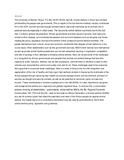| dc.description.abstract | The University of Nairobi- Kenya. P.O Box 30197-00100, Nairobi. Animal welfare in Africa has not been prioritized by the people and governments. This is inspite of the fact that the livestock industry contributes 6% of the GDP; and the fact that draught animals lead to improved livelihoods as do animals role in personal security especially in urban areas. The low priority animal welfare is primarily due to the fact that, in a bid to achieve development, African governments prioritize issues of poverty, food insecurity, armed conflict, disease, environmental devastation and recurrent disasters such as droughts and floods. Inadequate policy, legislation and law enforcement further compound animal welfare shortfalls. The people themselves have cultural, social and economic constraints that relegate animal welfare to a non-crucial issue. Other stakeholders such as the government services, NGO‟s both national and international as well as private animal health practitioners are not well networked resulting in duplication, competition and lack of synergy in their attempts to enhance animal welfare. Here, we review some of the challenges to a recognition by African governments and peoples that animals are sentient beings that have the capacity to suffer, feel pain, distress, fear as well as pleasure, and that there is therefore a need to offer animals care and protection and to end cruelty once and for all. These challenges need to be overcome. We argue that to overcome these challenges, there is a need to bring to the fore the recognition and appreciation of the role of healthy and high vigor (high welfare) animals in improving the livelihoods of the African people through improving their health via zoonotic disease control and nourishment; provision of services as draught and security animals; as well as the potential for economic gains via trade and tourism. These contributions of animals to people are in line with MDGs. It is also important to recognize and accept animal welfare as a regionally and globally important issue. To achieve this, a consultative process involving all stakeholders – governments, animal welfare NGOs, the AU, Regional Economic Communities, OIE, FAO and the UN - need to formulate an African Declaration of Animal welfare (ADAW) as a set of common goals that reflect the aspiration and need of the African people as regards animal welfare. It is hoped that such a consultative declaration may be used by governments to inform their animal welfare policy, legislation and guidelines. | en_US |

